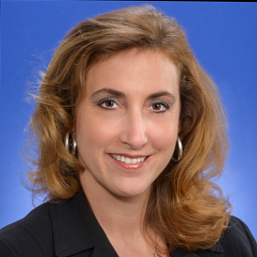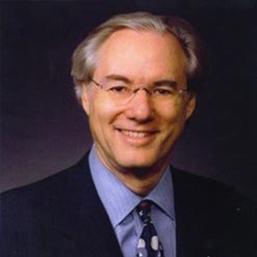

Recent advances in our understanding of the brain are inspiring predictions that we’re entering a golden age of neuroscience – what could well be the most promising period for brain research and potential treatments for cognitive conditions in human history. Nowhere is this arrival more eagerly anticipated or desperately needed than when it comes to treating Alzheimer’s disease.
Alzheimer’s disease and related dementias already impact more than 55 million people around the world living with these diseases – plus hundreds of millions of family members, loved ones and caregivers who share in the fight with them against the disease. The demographic certainty of aging populations promises a growing wave of Alzheimer’s cases in the coming decades, projected to reach a staggering 152 million by 2050.
The consequences of this slow-moving, global pandemic extend beyond those directly impacted. Alzheimer’s disease threatens to bankrupt national health care systems and undermine the prospects for long-term, sustainable economic growth worldwide. Winning the fight against Alzheimer’s is not only a mission of mercy to those struggling with this devastating disease; it is essential to achieving a future of healthy aging that will be required to promote economic growth, stabilize societies and rescue health care systems in danger of being overwhelmed by Alzheimer’s.
Any successful strategy against Alzheimer’s disease rests on three pillars: the availability of multiple effective treatments; early, routine, accurate and actionable diagnosis; and health system preparedness. Fortunately, we are seeing progress in treatments and diagnostic tools; and the Davos Alzheimer’s Collaborative (DAC) – a public/private collaboration dedicated to improving the diagnosis and treatment of Alzheimer’s – is working to accelerate action not only in treatments and diagnostics but also in preparing healthcare systems worldwide to screen, test and treat Alzheimer’s disease on the scale needed to address this emerging pandemic.
Earlier this year, the U.S. Food and Drug Administration (FDA) granted accelerated approval to for a new treatment, based on amyloid plaque lowering as a surrogate marker reasonably likely to predict clinical benefit. As in other disease areas, notably cancer, further progress and innovation follows from initial entrants. In fact, at least two pharmaceutical companies have announced plans to pursue accelerated approval in the near term. As more treatments enter the market, we can expect a wealth of scientific data and insights that can create a virtuous cycle of innovation.
New diagnostic tools and digital cognitive assessments are also improving our ability to detect Alzheimer’s. PET scans allowed us to learn that the pathology of Alzheimer’s disease builds up 10-20 years before symptoms and now blood tests can now measure amyloid beta in the blood which correlates with plaque buildup in the brain – a defining disease marker. Research suggests retinal scans and digital tools may help identify early-stage Alzheimer’s disease. Many other innovations are on the horizon.
These are hopeful advances against a disease that has seldom shown any reason for hope. Yet until health systems are ready to take advantage of these and future innovations – until brain health in all its phases is deeply embedded into medical care – patients will not benefit from these advances and we cannot make the progress we need against Alzheimer’s.
To help global health systems align with the urgent need to detect, diagnose and treat Alzheimer’s disease, DAC recently launched a Healthcare System Preparedness Initiative. The initiative will award grants to fund innovative approaches that can demonstrably increase the percentage of our aging population who receive standardized cognitive assessments.
Our goal is to make early screening for Alzheimer’s symptoms routine, affordable and simple enough to be administered by primary care providers and other non-specialists. We want to encourage both new innovations and creative adaptations of existing solutions, and we will be awarding grants under our recently launched Health System Preparedness Initiative to foster the most promising approaches.
The principal funding criteria is straightforward: Can the clinical approach show a track record of success in getting more at-risk people screened for early warning signs of cognitive impairment?
This is the first critical step in creating a patient pathway for brain health that will lead to greater awareness, detection, diagnosis and appropriate treatment and care for those who need it. Successful initiatives will be incorporated into DAC Learning Labs, a network of governments and healthcare system leaders, to share and scale best practices from the pilots – following the tried-and-true medical teaching model of “see one, do one, teach one.”
There are many reasons for optimism in our battle against Alzheimer’s disease. New therapies are hitting the market. Diagnostic tools are improving. Now it’s time for global health systems to position themselves to take advantage of these and coming breakthroughs. Only then can we begin to look forward to a future where no one is lost to Alzheimer’s.
To learn more about DAC’s work, please visit www.davosalzheimerscollaborative.org
__________
George Vradenburg is Chair of the Davos Alzheimer’s Collaborative
Phyllis Barkman Ferrell (Eli Lilly and Company) is Director of Healthcare System Readiness at the Davos Alzheimer’s Collaborative